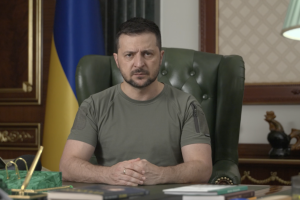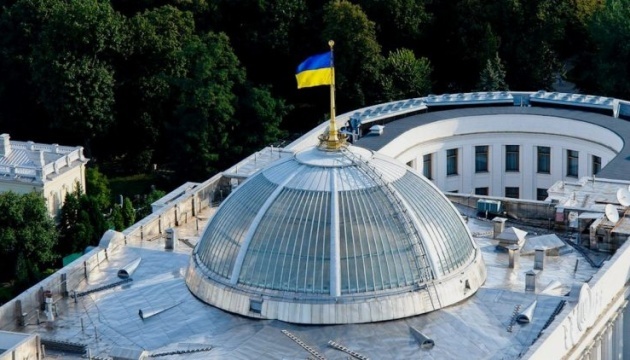
What is the best result of early parliamentary elections for Ukrainians?
The new election campaign in Ukraine was actually launched on the day (May 20), when newly elected President of Ukraine Volodymyr Zelensky assumed the office of the President of Ukraine and announced his intention to dissolve the Parliament and called on members of the Government to resign.
“Ukraine needs changes as soon as possible. If elections to the Verkhovna Rada were held in October, a lot of time would be lost,” the president later explained this step at a meeting with representatives of the IMF.
In accordance with Article 15 of the Law "On Elections of People's Deputies of Ukraine", snap parliamentary elections are held on the last Sunday of the 60-day period from the date of publication of the presidential decree on the early termination of the powers of the Verkhovna Rada. Therefore, on May 24, on the day following the day of the decree, the election campaign was officially launched in Ukraine. The elections will be held on July 21.
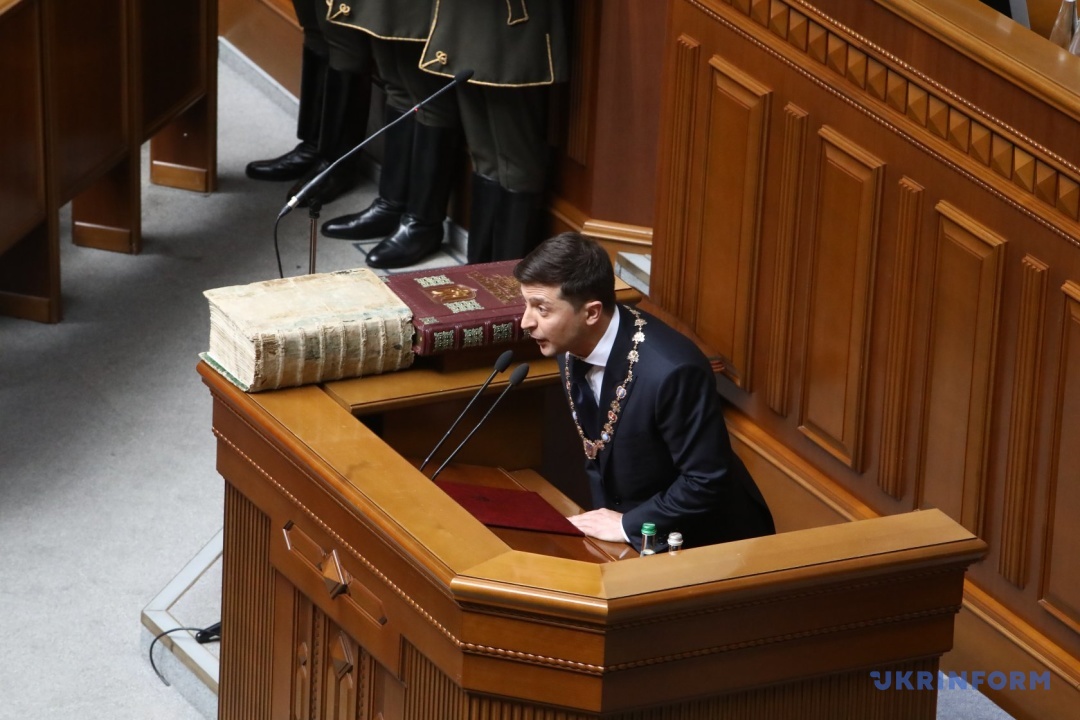
However, there is just a chance that the election date is not yet final. Given that the Central Election Commission (CEC) does not have time to prepare a voting in such a short time, the election day can be postponed for two or four weeks.
The elections will be held according to the current electoral system: 225 deputies are elected by party lists, 225 – by single-mandate ("majority") constituencies. To become a parliamentary party, a political party needs to overcome the 5 percent election threshold, and candidates in the constituencies need to obtain the largest number of votes as compared with their electoral competitors.
But this may also change. As long as the presidential decree on the dissolution of Parliament is in force and the election campaign is underway, changes to the electoral legislation are prohibited. But if the decree is suspended or replaced with another one with a later date, then the Parliament will have time to reduce the 5 percent election threshold, allow the blocking of parties or introduce the requirement of “openness” of the parties’ electoral lists.
Parliament
There are 423 people's deputies in the current Ukrainian Parliament. Two factions make up the ruling coalition: Bloc of Petro Poroshenko (135 members) and People's Front (80). Three more factions – Samopomich (25), Radical Party (21) and Batkivshchyna (20) – were in the ruling coalition until 2016. Then Batkivshchyna and Samopomich filed an application for withdrawal from coalition, and Radical Party announced its withdrawal, although it did not formalize it. Since then, the situation for almost three years was, de jure, controversial - Speaker Andriy Parubiy repeatedly stated that the coalition existed, with more than 226 people's deputies, the list of which, however, no one saw. In addition, the Constitution of Ukraine does not specify whether the already established ruling coalition can be added by independent MPs.
But, de facto, the Government and the President always had a situational majority - the two “their” factions always could add necessary 20-30 votes from the supporters of the “opposition”. Almost three years later, such legal uncertainty became a reason for the dissolution of the Parliament.
The dissolution of the Parliament was expected to be a blow to the current MPs, who would stubbornly resist and defend their position. It turned out different. Most parliamentary parties saw an advantage in early elections. They just passed the presidential election, and they deployed and "trained" all the services necessary for the electoral process.
Government
In the evening of the same day, May 20, when newly elected President of Ukraine Volodymyr Zelensky announced his intention to dissolve the Parliament and called on members of the Government to resign, Volodymyr Groysman announced his decision to resign as the prime minister. The Constitution of Ukraine defines that resignation of the Cabinet of Ministers shall be approved by the Verkhovna Rada.
The resignation of the Prime Minister of Ukraine entails the resignation of the entire Cabinet. In this case, the Parliament should form a new Government. The resigned Cabinet of Ministers should continue to fulfill its powers until the beginning of the work of the newly formed Cabinet of Ministers of Ukraine.
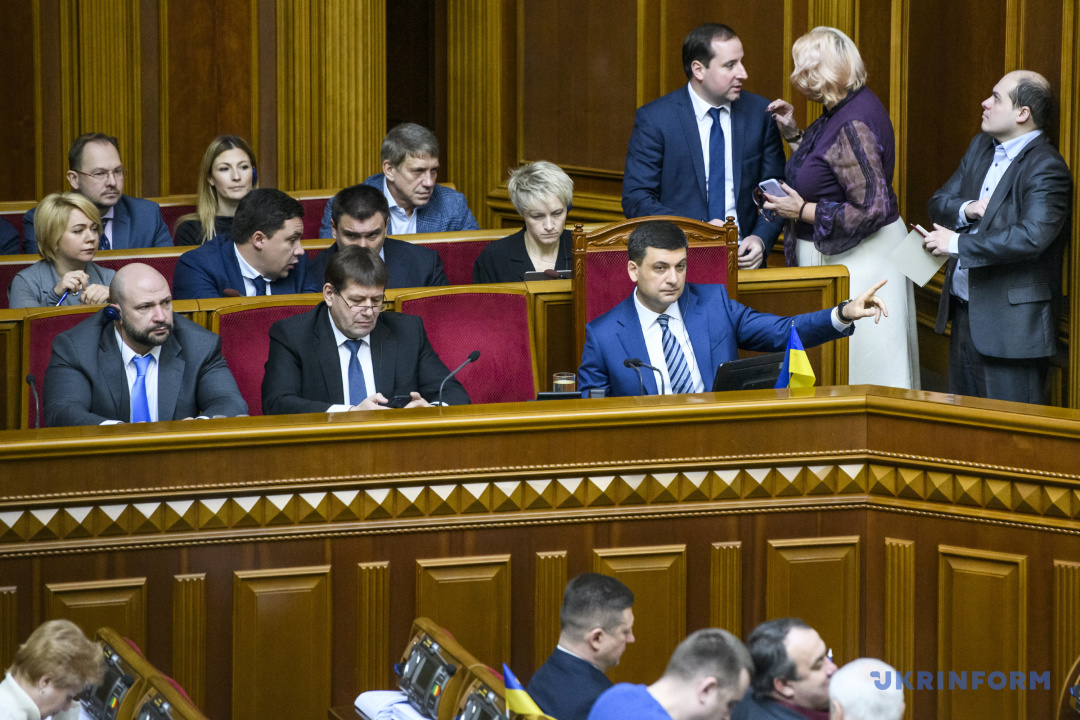
In parallel, Volodymyr Groysman began his own political project to run for the Parliament. His party will hold a congress in early June. Speaking about the composition of the party, Minister of the Cabinet of Ministers Oleksandr Sayenko said that its members would be "young people with a certain positive experience." At the same time, he did not rule out that "several members of the government may join the project."
Parliamentary parties
The parties that make up the current Verkhovna Rada (that is, the winners of the previous elections) are the political forces, which are the most prepared for electoral clashes, but at the same time they are the most vulnerable - the voters see them as an old system, which must be changed. Therefore, among the voters the level of support for them is rather low. According to a survey conducted by the Rating Sociological Group as of the first half of May, there were the following results:
Bloc of Petro Poroshenko's Solidarity -10.6% of those who would vote for this party;
Batkivshchyna All-Ukrainian Association headed by Yulia Tymoshenko - 9.1%;
Opposition Platform - For Life - 10.9%;
Opposition Bloc - Party of Peace and Development - 3.5%;
Oleh Liashko's Radical Party - 3.3%;
Samopomich Union - 2.0%.
In addition, almost 40% of respondents supported the “non-existent” party of new President Zelensky. Therefore, in the short time left before the elections, they will have to take care of changing the situation. In the coming weeks, we will witness the holding of party congresses previously scheduled for August and September, as well as numerous public statements and reports.
Non-parliamentary parties
The Strength and Honor political party, founded in 2009, participated in the parliamentary elections in October 2014. The party’s leader Ihor Smeshko due to his appointment as chairman of the Intelligence Committee under the President of Ukraine (since October 7, 2014) was unable to head the list, but, according to him, he is the spiritual and ideological leader of the party. In this year’s presidential election, Smeshko surprised many people, having collected almost 6% of votes without campaigning. Now the “sociological” rating of the party is 5.1%.
The Civil Position party led by ex-minister of defense (2005–2007) Anatoliy Hrytsenko oriented towards the same electorate, with rating of 5%. Both parties, where the leaders are former military, have an advantage over the parties, composed of the heads of public organizations - they have one leader and high level discipline.

The Movement of New Forces headed by Mikheil Saakashvili is a political party registered in 2017. It started with great success but then was put on hold ... Now, after President Zelensky returned Ukrainian citizenship to Saakashvili, which he was stripped of in July 2017, and after Saakashvili’s return to Ukraine, he will probably try to resume his political force.
On May 20, Kharkiv Mayor Hennadiy Kernes announced a new joint project with Odesa Mayor Hennadiy Trukhanov, and the participation of a new political force in the early parliamentary elections. The next day, Uzhhorod Mayor Bohdan Andriiv joined the project.
Servant of the People is a dream party since there is no party but the rating is high
Actually, therefore, the rating is high, because nothing can stop you loving your cherished ideal. This is a party that voters have created in their mind's eye – young, progressive, intelligent, caring, honest (continue the list). And there is nothing new here: when people vote for “closed” party lists, don't they do the same? They see only the leader and rely on his choice for the rest.
The Servant of the People party focuses on the macronization that is popular among Ukrainian political forces — that is, it appeals to initiative volunteers who want to enter politics.
The party will hold a congress in two stages. The first one is tentatively scheduled for June 8. The second stage of the congress "is connected with the formation of a final list after receiving feedback from voters."
The Voice party, or Voice of Vakarchuk
Singer and musician Svyatoslav Vakarchuk during the presidential campaign 2019 was considered as an alternative to Zelensky. He is a public and well-known person but not a politician. However, he decided not to run for the post of Ukraine's president, and so that he opened the way to the presidency for the current head of state.
On May 16, Vakarchuk announced the creation of the Holos (Voice) party and its participation in early parliamentary elections. However, he noted that his party would not unite with other political parties or blocs. A respective video address was posted on his Twitter account.
Партія #Голос не об’єднується з політичними брендами. Ми готові об’єднувати зусилля з людьми, що розділяють наші принципи, ідеологічні програми, нашу програму. З людьми, а не з брендами! #ГолосЗмін pic.twitter.com/kwCFf1PKBK
— Sviatoslav Vakarchuk (@s_vakarchuk) 28 мая 2019 г.
Crimea and ORDLO
For nearly five years, during the work of the previous Parliament, there were 27 vacant seats for representatives of the territories controlled by the Russian Federation – the Autonomous Republic of Crimea and certain districts of Donetsk and Luhansk regions (ORDLO). If the majority voting system is preserved, the same 27 districts defined by law will not be able to hold elections again, and they will be postponed until the day when fair democratic elections can be held there. Due to the war unleashed by Russia, representatives of these territories are not able to influence the state of affairs in Ukraine through the electoral process.
Oligarchs
The important participants in all elections in Ukraine are the so-called "oligarchs", that is, the owners of the largest capital, the managers of the most profitable sectors of the economy, whose special position relies on relations in government agencies and with state leaders.
The 100 richest Ukrainians are getting richer 12 times faster than the country's GDP. Moreover, the growth rate of their financial conditions for the previous year has only increased.
The public usually names several persons, in particular, Rinat Akhmetov (owner of System Capital Management), Ihor Kolomoisky (leader of Privat Group), Victor Pinchuk (president of the Interpipe Company), Dmytro Firtash (chairman of the Board of Directors of Group DF) and some others. In general, there are about 35 main oligarchic groups in Ukraine. As of last year, 52 Ukrainian businessmen earned from $100 million to a billion, seven - exceeded a billion.
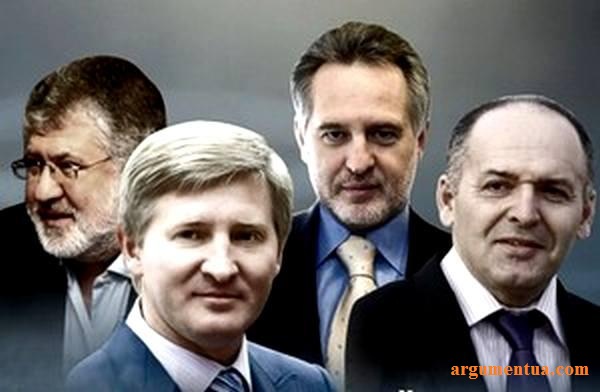
For the public, they are somewhat demonized and have a reputation as a “secret power”. The political parties loudly reject the possibility of agreements with the oligarchs. And they say that “the election campaign will be financed by small and medium-sized businesses” - without this, they will not receive the love of a voter. The oligarchs for the same reasons refuse to finance their own parties and, according to their long tradition, “diversify risks”: their representatives or special interest groups exist in different competing parties, and therefore the oligarchs win elections in any case.
The best election result for everyone
That is why the best outcome of the elections for all citizens of Ukraine would be a change of the economic model (from raw materials, as the majority of oligarchs make their millions and billions in raw materials and agricultural sector, to a value-added and science-intensive economy) but not a change of party names in parliament.
For this, we need people's deputies who make laws effective for a competitive environment and fair legal proceedings - and then their parties may be called as they want.
The country needs elections when not only the nominal winner but the whole country wins. The time has come.
Oleksandr Volynsky, Kyiv


